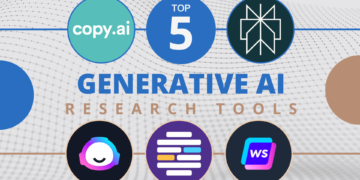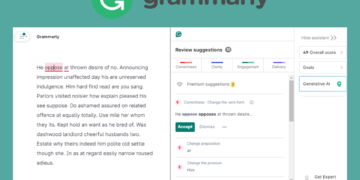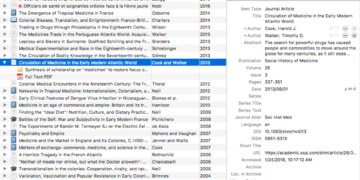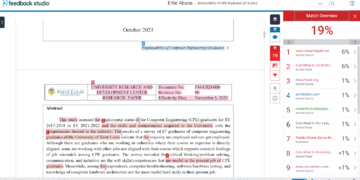Attending research conference is a significant opportunity for academics to showcase their work, network with peers, and stay updated on the latest advancements in their field. It’s a platform where researchers can present their findings to a knowledgeable audience, receive constructive feedback, and engage in intellectual discussions that can refine their work and spark new ideas. Moreover, conferences are ideal for expanding one’s professional network, meeting potential collaborators, mentors, and even future employers. The dynamic environment fosters an exchange of ideas and knowledge, keeping you abreast of the latest trends, technologies, and methodologies in your area of expertise. To make the most of this invaluable experience, thorough preparation is essential. From perfecting your presentation and engaging with other attendees to actively participating in sessions and following up with new contacts, every step requires strategic planning and execution. This guide provides five insider tips to help you excel in attending research conference, ensuring you maximize the benefits and make a lasting impression in the academic community.
Your presentation is often the centerpiece of your conference experience. Start by crafting a clear, concise, and engaging presentation. Use visuals effectively and ensure your slides are not overcrowded with text. Practice delivering your talk multiple times to get comfortable with the flow and timing. Anticipate possible questions and prepare your answers. Remember, confidence and clarity can significantly impact how your research is received. Here’s how to ensure it’s top-notch:
- Develop Clear Objectives
- Define what you want to convey to your audience.
- Structure your presentation to highlight key points and findings.
- Create Engaging Slides
- Use bullet points, images, and charts to make your slides visually appealing.
- Avoid overcrowding slides with text; focus on essential information.
- Rehearse Extensively
- Practice delivering your talk multiple times.
- Time yourself to ensure you stay within the allotted time.
- Practice in front of colleagues or friends to get feedback.
- Anticipate Questions
- Think about potential questions the audience might ask.
- Prepare concise and informative answers.
- Technical Setup
- Ensure your presentation works seamlessly with the conference’s AV equipment.
- Have a backup of your presentation on a USB drive and in cloud storage.
Networking is a key component of any conference. Before you go, research the attendees and identify those whose work aligns with your interests. Prepare a brief introduction about yourself and your research. At the conference, don’t be shy about introducing yourself to new people during breaks, social events, and poster sessions. Effective networking can lead to collaborations, job opportunities, and lifelong professional relationships. Here’s how to do it effectively:
- Research Attendees
- Look at the conference’s attendee list or use social media platforms to identify key people.
- Make a list of individuals whose work interests you.
- Prepare Your Introduction
- Have a brief, engaging introduction about yourself and your research.
- Practice this introduction so you can deliver it confidently.
- Engage in Conversations
- Approach new people during coffee breaks, poster sessions, and social events.
- Show genuine interest in their work and ask insightful questions.
- Exchange Contact Information
- Bring plenty of business cards.
- Make notes on the back of received business cards to remember the context of the meeting.
- Utilize Social Media
- Engage with the conference’s hashtag on platforms like Twitter.
- Connect with new contacts on LinkedIn to maintain the professional relationship.
Keynote sessions often feature leading experts in your field and provide insights into cutting-edge research and future directions. Plan your schedule to include these high-impact sessions. Additionally, attend other relevant talks and workshops to broaden your knowledge and gain different perspectives. Taking notes during these sessions can help you retain important information and generate new ideas for your own research. This is the best approach:
- Plan Your Schedule
- Review the conference program in advance and highlight the sessions you want to attend.
- Prioritize keynote addresses and sessions that align with your research interests.
- Take Notes
- Bring a notebook or a digital device to take detailed notes.
- Focus on key points, new ideas, and potential implications for your work.
- Engage with the Content
- Ask questions during the Q&A sessions to clarify points or gain deeper insights.
- Discuss the session with other attendees afterward to explore different perspectives.
- Follow Up
- Reach out to the speakers if you have further questions or comments.
- Mention specific points from their talk to show you were engaged and attentive.
Active participation in discussions and Q&A sessions is an excellent way to demonstrate your engagement and knowledge. Prepare thoughtful questions in advance for the sessions you plan to attend. During these interactions, listen carefully to the speakers and other attendees. Your contributions can spark meaningful conversations and help you stand out to fellow researchers and potential collaborators. This is how to do it properly:
- Prepare Questions in Advance
- Think about questions related to the topics of sessions you plan to attend.
- Ensure your questions are clear, concise, and relevant.
- Engage During Sessions
- Listen attentively and take notes to form your questions.
- Stand up and introduce yourself before asking your question to gain visibility.
- Join Breakout Sessions
- Participate in smaller group discussions or workshops.
- These settings can be more conducive to in-depth discussions and networking.
- Follow Up Post-Session
- Approach speakers or panelists after their sessions for more in-depth conversations.
- Use these interactions to build connections and gain deeper insights.
After meeting new people, exchange business cards and make a note of something memorable about each interaction. This will help you personalize your follow-up messages. Within a few days after the conference, send a brief email to your new contacts, thanking them for their time and expressing your interest in staying in touch. Building a professional network requires nurturing these connections over time. Use this strategy for maximum effectiveness:
- Exchange Business Cards
- Always carry a sufficient number of business cards.
- When receiving a card, write a note about the person or conversation to remember them.
- Organize Your Contacts
- After the conference, organize the business cards and notes.
- Consider creating a spreadsheet or using a contact management app to keep track of details.
- Send Follow-Up Emails
- Within a few days, email your new contacts to thank them for their time.
- Reference something specific from your conversation to personalize the message.
- Connect on Social Media
- Send LinkedIn connection requests with a personalized message.
- Follow and engage with their work on platforms like Twitter or ResearchGate.
- Maintain Relationships
- Periodically reach out to your new contacts with updates about your work.
- Share relevant articles or resources that might interest them.





































